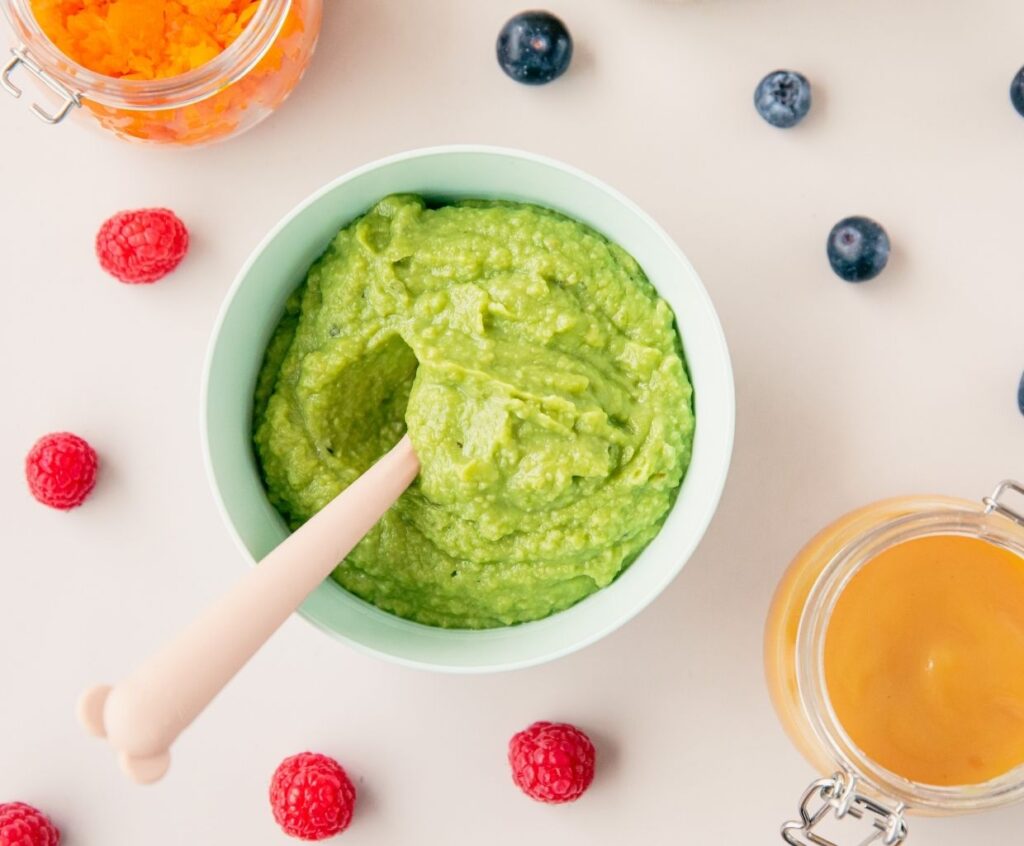Protecting Your Baby: Identifying Baby Foods with Heavy Metals and Ensuring Safe Nutrition
Welcome to our guide on protecting your baby’s health by identifying foods containing heavy metals and ensuring safe nutrition for your little one. As parents, we always want the best for our children, and one crucial aspect is providing them with nutritious and safe food options right from the start.
While baby food manufacturers adhere to strict guidelines, parents need to be aware of the potential presence of heavy metals in these products. Heavy metals, such as lead, arsenic, and mercury, can harm a baby’s developing brain and body. Therefore, it’s crucial to identify and choose baby foods that minimize their exposure to these substances.
Identifying Baby Foods with Heavy Metals
Identifying baby foods that may contain heavy metals can be a challenging task for parents. However, by being informed and vigilant, you can make better choices for your baby’s well-being. Here are a few tips to help you:
1. Research Different Brands
Take the time to research different baby food brands and their manufacturing practices. Look for companies that prioritize safety and have rigorous testing protocols to minimize heavy metal contamination. Consumer reviews and trusted sources can provide valuable insights into the reputation and reliability of various brands.
2. Read Labels Carefully
When purchasing baby food, always read the labels carefully. Look for products that explicitly state being tested for heavy metals or mention adherence to strict safety standards. Additionally, avoid foods with artificial additives and preservatives, as they may increase the risk of heavy metal contamination.
3. Choose Organic Options
Opting for organic baby food can be wise, as organic farming practices minimize exposure to heavy metals. Organic certification ensures that the food has been produced without synthetic fertilizers, pesticides, or genetically modified organisms (GMOs). However, it’s still essential to research the specific brand and ensure they conduct thorough testing.
Ensuring Safe Nutrition
Besides identifying baby foods with heavy metals, it’s essential to focus on providing safe and nutritious meals for your little one. Here are a few additional tips:
1. Homemade Baby Food
Consider making homemade baby food to have better control over the ingredients your baby consumes. Pureeing fruits, vegetables, and grains at home allows you to ensure the freshness and quality of the food. However, be cautious about potential allergens and follow proper food safety practices during preparation.
2. Diversify the Diet
Offer a variety of foods to your baby to promote a balanced diet. Introducing a wide range of fruits, vegetables, whole grains, and proteins can help provide essential nutrients while reducing the risk of heavy metal exposure from a single source. Remember to introduce new foods gradually to monitor any potential allergies or sensitivities.
3. Consult with a Pediatrician
Always consult your pediatrician regarding your baby’s nutrition and specific dietary needs. They can provide personalized advice based on your child’s age, development, and any medical conditions that need consideration. Regular check-ups will ensure your baby is healthy and receiving the necessary nutrients.
Following these guidelines and staying informed can protect your baby from potential heavy metal exposure and ensure they receive safe and nutritious meals. Remember, a healthy start leads to a healthy future!
How to reduce heavy metals in baby food
There are several steps you can take to reduce the presence of heavy metals in baby food:
1. Choose organic baby food: Organic baby food is often tested for heavy metals and contains fewer pesticides, making it a safer choice.
2. Cook homemade baby food: Making your baby food allows you to choose fresh, organic ingredients and gives you better control over the cooking process, reducing the risk of heavy metal contamination.
3. Avoid rice-based products: Rice tends to absorb heavy metals from the soil more readily than other grains, so it’s best to limit or avoid rice-based baby foods and opt for alternatives like oats or quinoa.
4. Diversify your baby’s diet: Introducing a variety of fruits, vegetables, grains, and proteins helps reduce exposure to heavy metals. Different foods have varying levels of heavy metals, so offering a wide range of options helps balance the intake.
5. Choose low-mercury fish: If you include fish in your baby’s diet, choose low-mercury options like salmon, cod, or sardines. Avoid high-mercury fish, such as shark, swordfish, and king mackerel, as they may contain higher levels of heavy metals.
6. Rinse canned foods: If you use canned fruits or vegetables, rinse them thoroughly with water before serving to reduce the heavy metal content.
7. Limit fruit juice consumption: Fruit juices, especially apple and grape juice, have been found to contain heavy metals. Limiting your baby’s fruit juice intake and offering water or diluted juice is best.
8. Regularly test water sources: If you use tap water to prepare baby food or formula, have it tested for heavy metals regularly. Consider using a water filter that removes heavy metals to ensure a safer water source.
Remember, it’s always a good idea to consult your pediatrician for personalized advice on reducing heavy metal exposure in your baby’s diet.
Best baby food brands for safe nutrition
Several options are available when choosing the best baby food brands for safe nutrition. Here are some top brands that prioritize safety and nutrition:
1. Earth’s Best Organic: This brand offers a wide range of organic baby food options made from high-quality ingredients. They follow rigorous safety standards and provide non-GMO products.
2. Gerber: Gerber is a well-known and trusted brand in the baby food industry. They offer various baby food options, including purees, snacks, and meals. Gerber ensures safety by carefully sourcing their ingredients and conducting regular quality checks.
3. Beech-Nut: Beech-Nut is known for its focus on natural and nutritious baby food. They use minimal processing and offer a range of organic and non-GMO options. Beech-Nut also provides transparency by listing all ingredients on their packaging.
4. Happy Baby Organics: Happy Baby Organics offers many organic food options with wholesome ingredients. They prioritize transparency and safety by using clear packaging and strictly sourcing ingredients.
5. Plum Organics: Plum Organics is dedicated to providing organic and nutritious baby food options. They offer a variety of flavors and textures, ensuring your baby gets a well-rounded diet. Plum Organics also follows strict safety standards.
6. Ella’s Kitchen: Ella’s Kitchen is known for its innovative and nutritious baby food options. They use organic ingredients and provide various flavors to introduce babies to various tastes and textures. Ella’s Kitchen focuses on safety and transparency.
Remember, it is always a good idea to consult with your pediatrician before introducing new foods to your baby’s diet.


